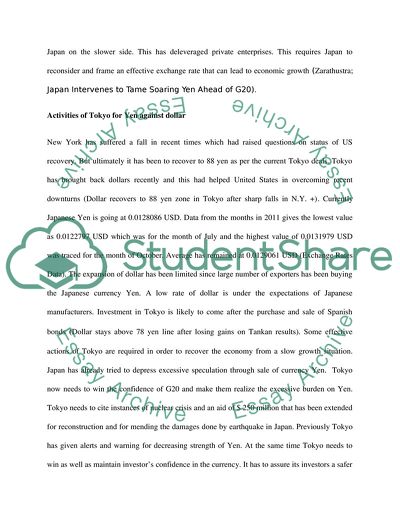Cite this document
(“Should Japanese Yen be appreciated or depreciated against U.S. Dollar Research Paper”, n.d.)
Should Japanese Yen be appreciated or depreciated against U.S. Dollar Research Paper. Retrieved from https://studentshare.org/macro-microeconomics/1586144-should-japanese-yen-be-appreciated-or-depreciated-against-us-dollar
Should Japanese Yen be appreciated or depreciated against U.S. Dollar Research Paper. Retrieved from https://studentshare.org/macro-microeconomics/1586144-should-japanese-yen-be-appreciated-or-depreciated-against-us-dollar
(Should Japanese Yen Be Appreciated or Depreciated Against U.S. Dollar Research Paper)
Should Japanese Yen Be Appreciated or Depreciated Against U.S. Dollar Research Paper. https://studentshare.org/macro-microeconomics/1586144-should-japanese-yen-be-appreciated-or-depreciated-against-us-dollar.
Should Japanese Yen Be Appreciated or Depreciated Against U.S. Dollar Research Paper. https://studentshare.org/macro-microeconomics/1586144-should-japanese-yen-be-appreciated-or-depreciated-against-us-dollar.
“Should Japanese Yen Be Appreciated or Depreciated Against U.S. Dollar Research Paper”, n.d. https://studentshare.org/macro-microeconomics/1586144-should-japanese-yen-be-appreciated-or-depreciated-against-us-dollar.


